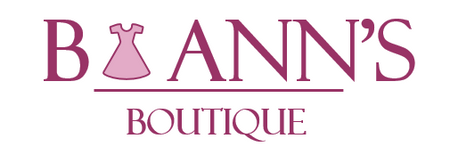There are numerous benefits of changing careers, especially if you’re hoping to increase your compensation, learn new skills, climb the corporate ladder, or improve your work-life balance. However, the potential cost of changing careers is one major drawback. In order to successfully land a job in a new field, you may need to pay for job training or a college degree, upgrade your work wardrobe, and print resumes or business cards. It’s also possible you could lose the vacation time you’ve accrued in your current position and miss out on other benefits such as healthcare and retirement packages.
That being said, there are several things women can do to save money while changing careers. Here are a few helpful money-saving tips from B Ann's Boutique.
Make Use of Professional Development Courses
From learning to become a better networker to enrolling in a full degree program in your chosen field, there are lots of great ways to continue your education and build connections when starting a new career. And while joining business networking groups and obtaining a college degree can be costly (the average cost of a four-year degree at a public in-state college is $25,290), completing one or more professional development courses is an affordable alternative if you already have experience in a particular job field and wish to start a new career in that same field.
As one option, you could pursue an IT bachelor's degree online if you’re ready to enhance your information technology skills and advance your career in IT. Professional development courses within the IT bachelor's degree program can teach you everything you need to know to become proficient in various IT roles, dealing with responsibilities such as software development, network security, and data management.
Other affordable professional development courses are available in fields such as digital marketing, human resources, information technology, and K-12 education. After completing your professional development course(s), you can even complete a skills assessment and share your achievements on social media.
Free Online Coding Resources
Leveraging free online resources is an excellent way to enhance your coding skills alongside your formal education. Platforms offer a wealth of tutorials, exercises, and projects that cater to beginners and advanced coders alike. By integrating these tools into your learning routine, you can deepen your understanding of different programming languages and frameworks at your own pace, making it easier to apply theoretical knowledge in practical, real-world situations. This approach not only reinforces your classroom learning but also significantly boosts your coding proficiency and confidence.
Use Free Tools and Resources for Job Seekers
Changing your career can be expensive, but there are plenty of free tools and resources to help you with tasks such as updating your resume, creating professional business cards, and looking for jobs in your new field. Free online design tools and templates, for instance, make it easy to create professional-looking resumes that include your preferred colors, photos, and copy — and you can design other materials such as cover letters, business cards, letters of recommendation, and portfolio websites.
In addition to using free online graphic design tools such as Canva or Design Wizard to create your job search documents, job search websites like Indeed, Monster, Glassdoor, and Ladders make it easy and affordable to look for work in your industry. And if you need to create a professional portfolio that showcases your work, you could use free websites such as Journo Portfolio, WordPress, or Behance.
Upgrade Your Work Wardrobe on a Budget
If updating your work wardrobe is part of your career change, you don’t have to break the bank with expensive new business attire. Instead, consider shopping at B Ann's Boutique, where style meets affordability. At B Ann's Boutique, you can find a selection of chic and professional outfits without the hefty price tag. Keep an eye out for their regular promotions, discounts, and special deals to further manage your clothing expenses smartly.
Check to See if You Can Cash Out Your Unused PTO
After quitting your job to change careers, you may be entitled to the unused vacation days you’ve accrued in your current position. However, PTO payout laws vary by state, and some employers have their own PTO policies in place. Be sure to review your company’s employee handbook for specific details, and visit your state’s official Department of Labor (DOL) website to learn more about your local PTO payout laws.
If you do qualify to cash out your unused vacation time, this money could go toward your education or training, new wardrobe, and other career change expenses. In the event that you cannot cash out your unused PTO, you could try negotiating for more paid time off when offered a job in your new career.
Changing Careers Doesn’t Have to Cost You
There are many hidden costs of changing careers, but this doesn’t mean there aren’t ways to keep these costs down. Instead of going back to school and completing a full degree program, for instance, you might be able to complete a few professional development courses. And rather than paying to work with a career coach or graphic designer, lots of free online tools can be used when creating your resume, business cards, and cover letters.
Changing your career can be incredibly rewarding, but it can also be expensive if you’re not careful. Keep these tips in mind and you’ll be sure to move into a new career without accumulating debt or tapping into your savings.

